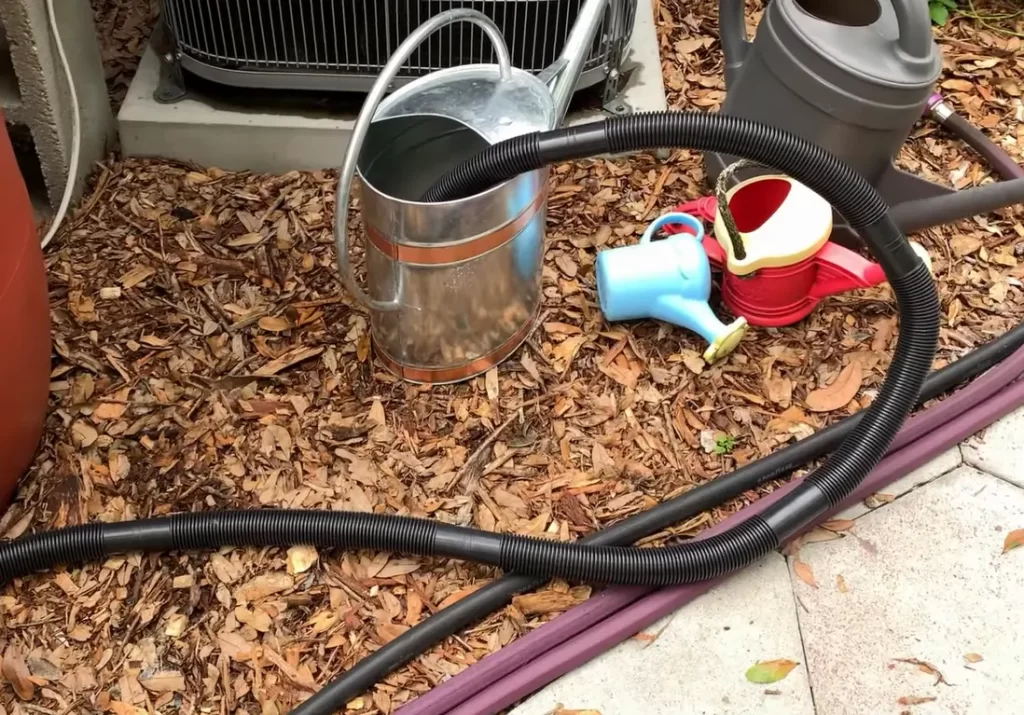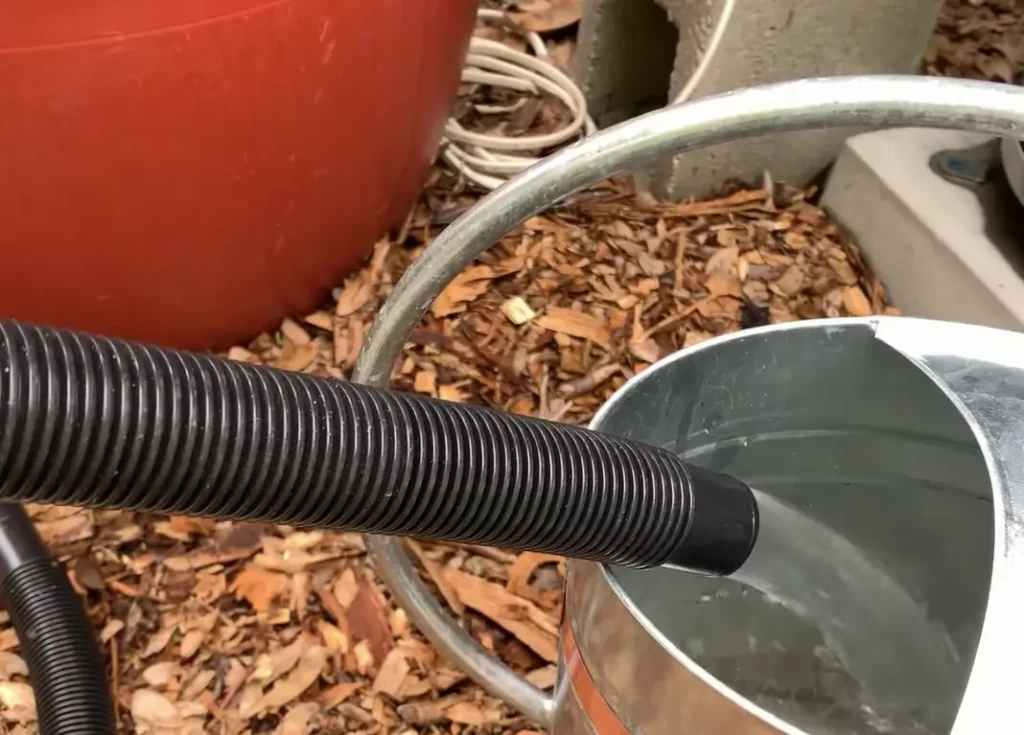Is Air Conditioner Water Safe For Plants? How to Use It
As temperatures rise, air conditioning becomes a necessity for many of us. But have you ever wondered about the impact of air conditioner water on the environment, particularly on plants? While air conditioner water seems like a convenient source of hydration for your plants, there is concern about its safety and potential negative effects.
The safety of air conditioner water for plants depends on various factors such as pH levels, mineral content, and potential contaminants. Generally, with proper testing and adjustments, air conditioner water is safe for plants.
In this article, we’ll explore the question, “Is air conditioner water safe for plants?” and provide the information you need to make informed decisions about your watering practices.
What Air Conditioner Water Is, And How Is It Collected?
Air conditioner water, also known as condensate, is the byproduct of air conditioning systems. It is the result of the cooling process that removes moisture from the air, causing water droplets to form on the cooling coils of the air conditioning unit. This water is then collected in a tray or pan and drained from the system.

In most cases, air conditioner water is discharged outside the building, but some systems collect it in a reservoir for later use. This water is usually clear and odorless, although it contains impurities such as dust, dirt, and microorganisms that accumulate in the air conditioning system. These impurities affect the safety and quality of the water for plants.
What Are The Composition And Potential Contaminants Of Air Conditioning Water?
Air conditioner water typically has a pH level of 5.0-5.5, which is slightly acidic. The water also contains minerals, such as calcium, magnesium, and iron, which affect plant growth. However, the mineral content of air conditioner water is generally lower than tap water.
One of the potential contaminants in air conditioner water is microorganisms such as bacteria, fungi, and mold, which thrive in the moist environment of air conditioning systems. These microorganisms cause health problems for humans and animals and affect plant health.
Air conditioner water contains pollutants from the outdoor air, such as dust, dirt, and chemicals. These contaminants harm plants if they are not properly filtered out before the water is used for irrigation. Therefore, it’s important to consider the potential contaminants in air conditioner water before using it on plants.
How Do Different Factors Affect The Safety Of Air Conditioner Water For Plants?
When using air conditioner water for plant watering, several factors affect its safety and suitability for your plants. From pH levels to mineral content, understanding these factors ensures your plants get the best possible care:
Ph Level
The pH level of air conditioner water is usually slightly acidic, which is not ideal for some plants. Different plants have different pH preferences, so it’s important to adjust the pH level of the water accordingly.
If the pH level is too acidic or alkaline, it affects the availability of nutrients for plants, leading to nutrient deficiencies and stunted growth. Therefore, it’s recommended to test the pH level of the water and adjust it to the appropriate range for the plants you are growing.
Mineral Content
Air conditioner water usually has lower mineral content than tap water. However, it still contains calcium, magnesium, and iron minerals. While these minerals are essential for plant growth, high minerals lead to mineral buildup in soil, affecting plant growth and health. Therefore, it’s important to test the mineral content of the water and adjust it if necessary.
How To Use Air Conditioner Water For Plants?
Are you seeking ways to conserve water and reduce environmental impact while keeping your plants healthy and thriving? One option is using air conditioner water for plant watering:
- Filter The Water: Air conditioner water contains impurities like dust, dirt, and microorganisms. Therefore, it’s recommended to filter the water before using it on plants. A simple mesh or fine cloth filter removes larger particles, while a more advanced filtration system is necessary to remove microorganisms.
- Limit Use To Non-Edible Plants: As a precaution, it’s best to use air conditioner water on non-edible plants only. This is because air conditioner water contains contaminants that are harmful if consumed.
- Don’t Use Air Conditioner Water Exclusively: It’s recommended to use alternative water sources such as municipal water or rainwater harvesting in addition to air conditioner water to ensure your plants get diverse nutrients.
- Avoid Using Water From Window Units: Water from window units is often more contaminated and contains higher pollution levels and microorganisms. It’s best to avoid using this water for plant watering.
What Are The Alternative Water Sources For Plants?
There are several alternative plant water sources, including rainwater harvesting and municipal water sources. Here’s a discussion of each:
Rainwater Harvesting
Rainwater harvesting is collecting and storing rainwater for later use. This water is used for irrigation, washing cars, or other non-potable uses. Rainwater is generally contaminant-free and has a neutral pH level, making it an excellent plant water source.
This water contains essential minerals that are beneficial for plant growth. To harvest rainwater, you can install a rain barrel or a more advanced rainwater harvesting system that collects water from your roof.
Municipal Water Sources
Municipal water sources are treated and disinfected to ensure they are safe for human consumption. However, the water contains high levels of minerals, such as calcium and chlorine, which affect plant growth.
Let the water sit for a day or two to allow the chlorine to dissipate before it is used for plant watering.
Well Water
Well-water is a natural water source that comes from underground aquifers. The mineral content of well water varies depending on the well’s location and depth.
It’s recommended to have the water tested periodically to ensure it’s safe for plant watering. Well-water contains contaminants such as pesticides and fertilizers, so it’s also important to have the water tested for these.
What Are The Other Uses Of Air Conditioner Water?
Air conditioner water is used for more than just plant watering. If you’re looking for ways to reduce water waste and find alternative uses for this valuable resource, explore the many other potential applications for air conditioner water.

Below are different use for air conditioners Water:
- Cleaning: Air conditioner water is used for cleaning floors, windows, and other surfaces.
- Toilet Flushing: This water is used for toilet flushing, which helps conserve water and reduce water bills.
- Cooling Towers: Air conditioner water is used in cooling towers, which are used in industrial and commercial settings to cool equipment and machinery. It’s important to ensure that the water is properly treated and disinfected to prevent the growth of bacteria and other contaminants.
- Irrigation: Air conditioner water is used for irrigation in certain cases, such as in arid regions where water is scarce. Before using, make sure that the water is safe for irrigation and not harmful to the soil or plants.
Final Words
Choosing the right water source for your plants is crucial for their health and growth. While air conditioner water is safe for plant watering if properly tested and adjusted, alternative water sources, such as rainwater, municipal water, and well water, are generally considered safer and more beneficial for plant growth.
Rainwater is a sustainable and cost-effective water source that is free of contaminants and has essential minerals beneficial for plant growth. Municipal and well water sources are safe if tested and adjusted for pH and mineral content. Ultimately, the key is to choose a water source that is appropriate for your plants and to ensure that the water is safe and free from contaminants.
We hope this article provided you expected answers for is air conditioner water safe for plants. By doing so, you can help your plants thrive and ensure that they are healthy and productive.
